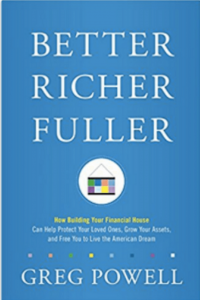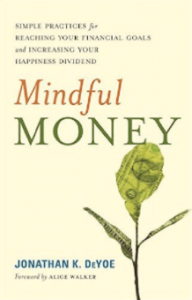 The following is a guest post from the crew over at Kasasa, a financial technology and marketing services company for the banking industry. Kasasa provides local banks and credit unions with marketing, resources, and innovative products including free checking. If you haven’t checked out their services, I highly recommend you do so and find an institution near you that offers Kasasa’s free checking.
The following is a guest post from the crew over at Kasasa, a financial technology and marketing services company for the banking industry. Kasasa provides local banks and credit unions with marketing, resources, and innovative products including free checking. If you haven’t checked out their services, I highly recommend you do so and find an institution near you that offers Kasasa’s free checking.
It’s hard to avoid debt.
Without it, the idea of buying a home or going to college would be unattainable for many. Even the people who we see as successful or enviable most likely have debts in some form.
So how can you utilize debt to grow your worth without digging a hole you can’t get out of? Simple: minimize the opportunity costs of the debts you hold.
What is opportunity cost?
In laymen’s terms: opportunity cost comes down to weighing your options and calculating the most efficient path to achieve your desired outcome.
It’s represented by this equation:
Opportunity Cost = Return of Most Lucrative Option – Return of Chosen Option
Why is opportunity cost important?
Since debt has become such a norm for many Americans, we’ve lost the urgency to get out of debt. The mindset can easily become: “Well, these minimum payments are so small, they don’t really impact my lifestyle. Why should I rush? Being in debt isn’t so bad, right?”
Wrong.
This mentality will cost you in the long run. Let’s look at a practical example that will reveal just how much you ultimately pay for your debt. And how much you could be saving if you calculated the opportunity costs of your debt now.
Example:
Let’s say you have $30,000 in student loans you need to pay off over the course of 40 years at a 5% interest rate. That’s a pretty long time to pay off your loans, and if you have a good job, the estimated $144.66 you need to pay each month might not hurt your lifestyle so much.
However, by the time you pay off that loan, you will have paid a total of $69,436. That’s almost $40,000 in interest over the life of the loan.
We don’t need to tell you what you could have done with that money.
Now, taking into account the opportunity cost, what if you paid $50 extra on the principal each month?



 Everyone needs a financial blueprint. Why use the term blueprint? Because people understand the value of a blueprint.
Everyone needs a financial blueprint. Why use the term blueprint? Because people understand the value of a blueprint.

